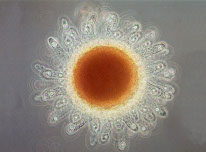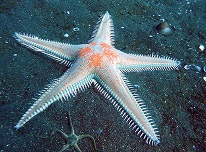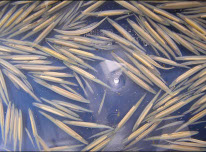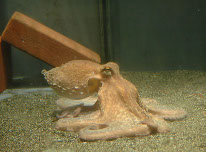 The Department of Biology and Evolution of Marine Organisms (BEOM) focus on fundamental biological mechanisms in marine organisms allowing animals to deal with the challenge of Life on Earth.
The Department of Biology and Evolution of Marine Organisms (BEOM) focus on fundamental biological mechanisms in marine organisms allowing animals to deal with the challenge of Life on Earth.
 By applying multi-faceted approaches we focus on:
By applying multi-faceted approaches we focus on:
- the regulatory mechanisms that direct development of organisms from fertilization to adulthood;
- the genomic, cellular, and neural machinery underlying biological, physiological and behavioral plasticity of organisms to tackle adaptation and evolution.
 The study of marine organisms allow us to exploit possible sources of natural products and metabolic processes for the use in biotechnology including the food industry and human health.
The study of marine organisms allow us to exploit possible sources of natural products and metabolic processes for the use in biotechnology including the food industry and human health.
The know-how and expertise of researchers, technologists and technicians belonging to BEOM cover a broad spectrum of scientific fields, including molecular biology, biology of reproduction and development, signal transduction, gene regulation and genetics, bioinformatics, comparative genomics, cell biology, physiology, ecotoxicology, biochemistry, zoology, physiology, neurosciences and behavioral biology. These skills benefit from the availability and extensive experience working on different species at different evolutionary distances belonging to Protostomes and Deuterostomes.
 Research activities include field and laboratory based experiments by applying numerous techniques including, for example: manipulation of gene function such as knock-down, knock-out and transgenesis by microinjection and electroporation; high-throughput genomics, transcriptomics (microarray, RNA-Seq, ChIP-Seq, and Real Time quantitative PCR); biological assays, spectrophotometry, spectrofluorimetry; high-resolution imaging using Confocal Laser Sheet Microscopy (CLSM) associated with fluorescent in situ hybridization (FISH) and immunohistochemistry; classical and electron microscopy (SEM, TEM); electrophysiology and behavioral and cognitive neuroscience methods.
Research activities include field and laboratory based experiments by applying numerous techniques including, for example: manipulation of gene function such as knock-down, knock-out and transgenesis by microinjection and electroporation; high-throughput genomics, transcriptomics (microarray, RNA-Seq, ChIP-Seq, and Real Time quantitative PCR); biological assays, spectrophotometry, spectrofluorimetry; high-resolution imaging using Confocal Laser Sheet Microscopy (CLSM) associated with fluorescent in situ hybridization (FISH) and immunohistochemistry; classical and electron microscopy (SEM, TEM); electrophysiology and behavioral and cognitive neuroscience methods.










